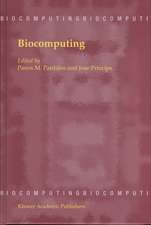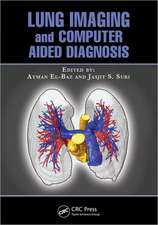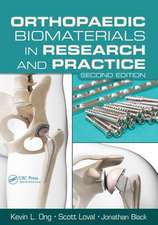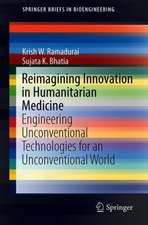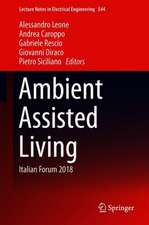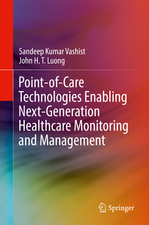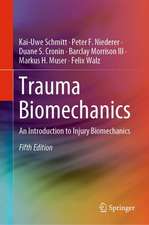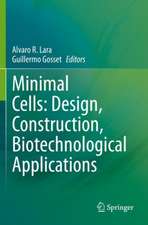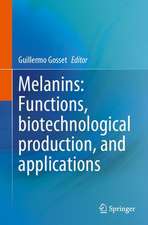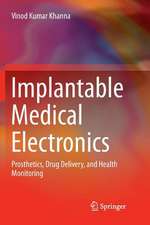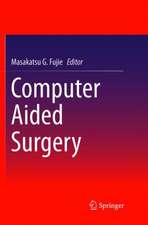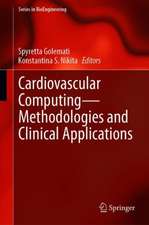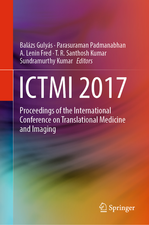Engineering of Microorganisms for the Production of Chemicals and Biofuels from Renewable Resources
Editat de Guillermo Gosseten Limba Engleză Hardback – 8 feb 2017
The objective of this book is to provide the current knowledge regarding strategies for the generation and improvement of microbial strains designed for the transformation of renewable raw materials into useful products. This book aims to become a reference for researchers and students working in this field.
| Toate formatele și edițiile | Preț | Express |
|---|---|---|
| Paperback (1) | 971.42 lei 38-44 zile | |
| Springer International Publishing – 27 iul 2018 | 971.42 lei 38-44 zile | |
| Hardback (1) | 1098.48 lei 3-5 săpt. | |
| Springer International Publishing – 8 feb 2017 | 1098.48 lei 3-5 săpt. |
Preț: 1098.48 lei
Preț vechi: 1156.29 lei
-5% Nou
Puncte Express: 1648
Preț estimativ în valută:
210.22€ • 228.27$ • 176.58£
210.22€ • 228.27$ • 176.58£
Carte disponibilă
Livrare economică 01-15 aprilie
Preluare comenzi: 021 569.72.76
Specificații
ISBN-13: 9783319517285
ISBN-10: 3319517287
Pagini: 200
Ilustrații: VII, 200 p. 18 illus., 15 illus. in color.
Dimensiuni: 155 x 235 x 17 mm
Greutate: 0.52 kg
Ediția:1st ed. 2017
Editura: Springer International Publishing
Colecția Springer
Locul publicării:Cham, Switzerland
ISBN-10: 3319517287
Pagini: 200
Ilustrații: VII, 200 p. 18 illus., 15 illus. in color.
Dimensiuni: 155 x 235 x 17 mm
Greutate: 0.52 kg
Ediția:1st ed. 2017
Editura: Springer International Publishing
Colecția Springer
Locul publicării:Cham, Switzerland
Cuprins
Part I: Moral visions of global education.- Chapter 1. Cosmopolitanism and educating the citizen of the world (Henk ten Have).- Chapter 2. Global bioethics and global education (Solomon Benatar).- Part II: Goals and challenges of global ethics education.- Chapter 3. Goals of global ethics education (Volnei Garrafa and Thiago Rocha da Cunha).- Chapter 4. Priorities in the teaching of ethics in a globalized world (Renzo Pegoraro).- Chapter 5. Can global ethics education solve inequities? (Leonardo de Castro).- Chaper 6. Interculturality and cultural competence (Ayesha Ahmad).- Chapter 7. Resources for global ethics education (Wanda Teays).- Part III: Practices of global ethics education.- Chapter 8. Permanent e-learning in the teaching of ethics (Susana Vidal).- Chapter 9. Arts and humanities as instruments for global ethics education (Jan Helge Solbakk).- Chapter 10. To see differently: incorporating the arts into the bioethics curriculum (Terry Maksymowych).- Chapter 11. The cinema as instrument for teaching and learning global ethics (Flavio Paranhos).- Chapter 12. The role of case studies in global ethics education (Willem Hoffmann).
Notă biografică
Guillermo Gosset obtained his Ph.D. degree in Biotechnology from the Universidad Nacional Autónoma de México (UNAM) in 1993. Since 1988 he has been a research scientist at the Biotechnology Institute/UNAM. His main research interests are related to metabolic pathway engineering and microbial physiology. Gosset’s work has appeared in more than 105 publications and eight patents. Several of these publications are utilized as examples in textbooks in the field of metabolic engineering. His industrial experience includes two years as a visiting scientist at Genencor International (Palo Alto, U.S.A.) and one year in Metabolic Explorer (Clermont-Ferrand, France). He has been a Senior Editor on the editorial board of the Journal of Molecular Microbiology and Biotechnology since 2006 and Associate Editor of Microbial Cell Factories since 2014.
Textul de pe ultima copertă
This book reviews state of the art regarding strategies for generating and improving microbial strains designed for utilizing renewable raw materials. It discusses methods for genetically engineering of thermophilic bacteria, Saccharomyces cerevisiae, Escherichia coli and Zymomonas mobilis, as well as approaches for obtaining useful products from these renewable raw materials based on biotechnological processes using microbes to chemically transform them. However, the efficient transformation of lignocellulosic biomass or glycerol to useful products represents a major challenge: Biomass has to be treated physically and chemically to release a mixture of sugars that potentially can be employed by the microbial production strains. These hydrolytic treatments result in diverse toxic compounds being generated and released, that negatively impact strain performance. Furthermore, most of the commonly used industrial microbes do not have the natural capacity to efficiently utilize and transform the generated sugar mixtures or glycerol.
The microbial species reviewed in this book possess particular advantages as production strains and are currently employed for the synthesis of numerous biofuels and chemicals. The book reviews the general and strain-specific genetic engineering strategies for the improvement of sugar mixtures and glycerol catabolism. The issue of lignocellulosic hydrolysate toxicity is addressed in several chapters, where genetic engineering and adaptive laboratory evolution strategies are reviewed and discussed.
The objective of this book is to provide the current knowledge regarding strategies for the generation and improvement of microbial strains designed for the transformation of renewable raw materials into useful products. This book aims to become a reference for researchers and students working in this field.
The objective of this book is to provide the current knowledge regarding strategies for the generation and improvement of microbial strains designed for the transformation of renewable raw materials into useful products. This book aims to become a reference for researchers and students working in this field.
Caracteristici
Focuses on the specific topic of microbial strain generation and improvement for the utilization of renewable raw materials
Written by respected experts in each field
Provides state-of-the-art information
Includes supplementary material: sn.pub/extras
Written by respected experts in each field
Provides state-of-the-art information
Includes supplementary material: sn.pub/extras



